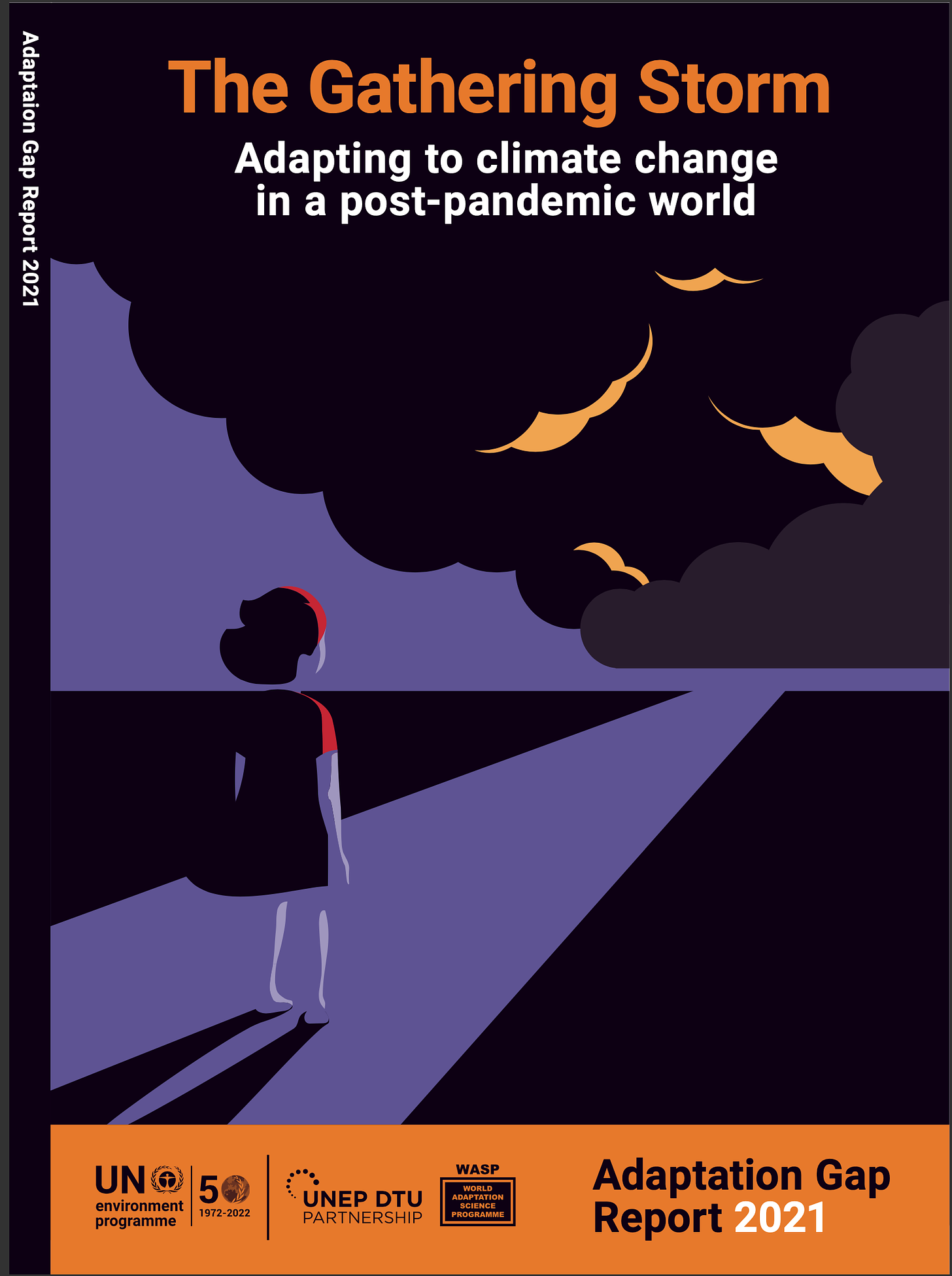The sixth edition of the UNEP Adaptation Gap Report is Out
The report finds that further ambition is needed to progress in national-level adaptation planning, finance and implementation worldwide.
Even as the world looks to step up efforts to cut greenhouse gas emissions, the need to adapt to the impacts of climate change already locked in are just as important.
The sixth edition of the UNEP Adaptation Gap Report: The Gathering Storm looks at how the world is doing in adapting to these intensifying impacts.
The report finds that there is an urgent need to step up climate adaptation finance.
Estimated adaptation costs in developing countries are five to ten times greater than current public adaptation finance flows, and the adaptation finance gap is widening.
COVID-19 recovery stimulus packages are also becoming a lost opportunity to finance climate adaptation.
Less than one third of 66 countries studied explicitly funded COVID-19 measures to address climate risks up to June 2021.
Meanwhile, the heightened cost of servicing debt, combined with decreased government revenues, may hamper future government spending on adaptation.
On the positive side, climate change adaptation is increasingly being embedded in policy and planning.
Around 79 per cent of countries have adopted at least one national-level adaptation planning instrument – an increase of 7 per cent since 2020.
Implementation of adaptation actions is also continuing to grow slowly, with the top ten donors funding more than 2,600 projects with a principal focus on adaptation between 2010 and 2019.
Overall, though, the report finds that further ambition is needed to progress in national-level adaptation planning, finance and implementation worldwide.




